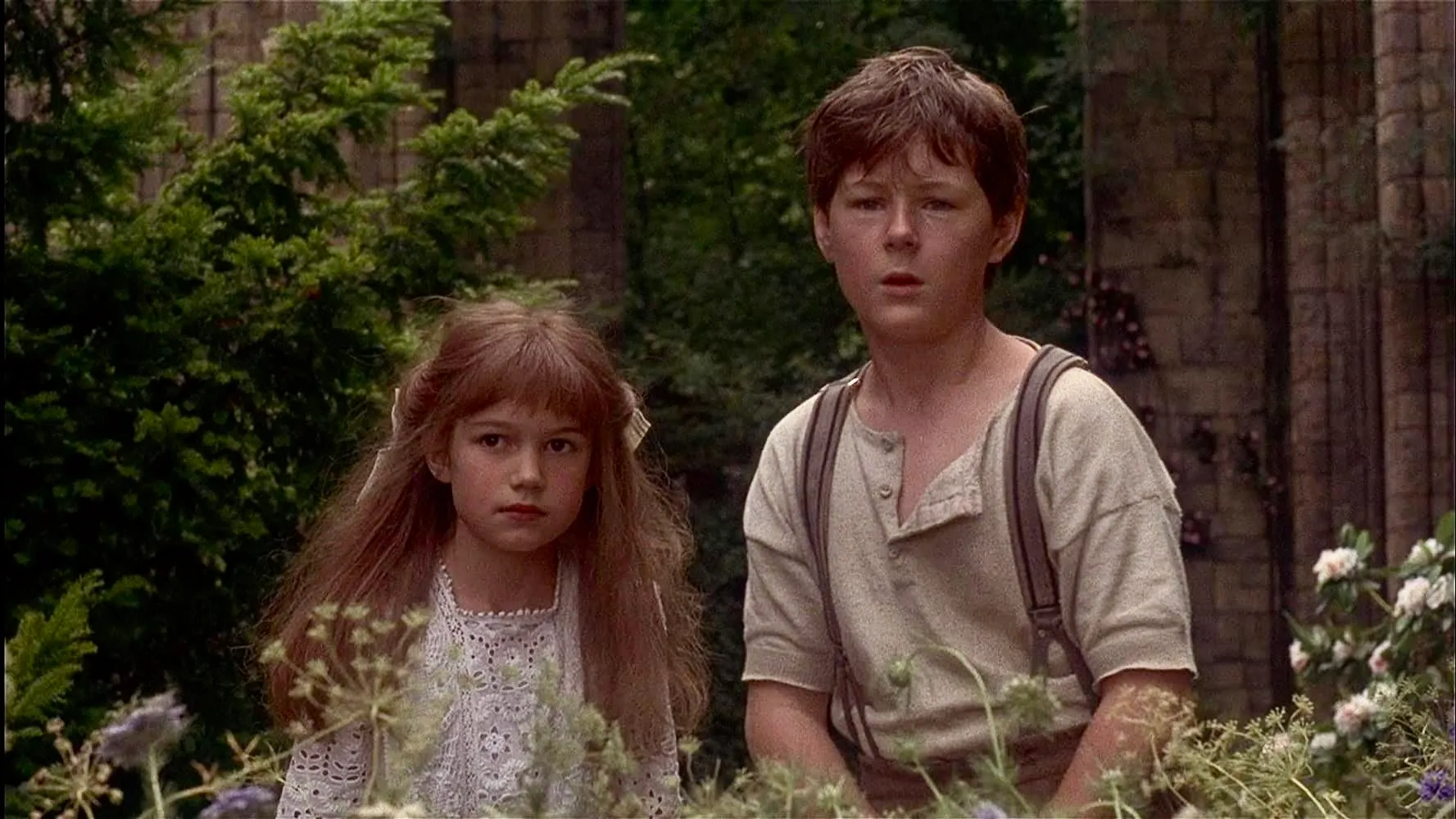30 Years Later, This Children’s Movie—And Its Soundtrack—Still Haunt Me

Almost 30 years ago, my mom took me and my sister to see a movie that was meant to be a mild Saturday diversion, but ended up sticking with me my entire life: The Secret Garden. Produced by Francis Ford Coppola and directed by Agnieszka Holland, it was of many film adaptations of Frances Hodgson Burnett’s classic children’s novel (the latest adaptation being Mac Murden’s 2020 film). Out of all those films, though, Holland’s is my favorite—and rewatching it as an adult, I’m struck by how much the movie holds up.
The story is deceptively simple. Mary (Kate Maberly) is a young British girl growing up in colonial India. When her cold and unloving parents are killed in an earthquake, Mary is sent to England to live with her uncle, Lord Archibald Craven (John Lynch). Mary is a stony and difficult kid, and she finds that she’s in good company among the brooding and dysfunctional residents of Misselthwaite Manor. But then Mary makes two discoveries. The first is the key to a mysterious garden, its door hidden behind an overgrown hedge. The second is Colin (Heydon Prowse), a cousin she never knew about, who suffers from an unknown illness and has never walked or left his room.
On the surface, the story is about the friendship that forms between Mary, Colin, and a boy named Dickon (Andrew Knott). Together, they clean up the garden and use it as a sanctuary from the harsh housekeeper Mrs. Medlock (Maggie Smith), where they teach Colin to walk.
Within that story, though, is a tender contemplation of grief, trauma, and healing. Mary gradually opens up to Dickon and Colin, realizing that she’s not unwanted. Colin learns that his body is stronger than he thought it was, and he and Lord Craven are able to form a relationship. The story is told against the backdrop of the English countryside, the forbidding manor house, and the breathtakingly lush garden itself. Maggie Smith is superb, as always, and Maberly makes you want to reach through the screen to give her a hug. Holland makes some interesting directorial choices, like echoing dream sequences and time lapse photography, and they seem like they shouldn’t work, but they do. The Secret Garden is a perfect, delicate little story, with the garden acting as a lovely metaphor for Mary setting down roots and blossoming.
Of course, the movie isn’t perfect. Colin miraculously leaving his wheelchair behind was surely just as tired and ableist in 1911 as it is now. But overall, it’s just as moving now as it was when I was 12.
What has followed me around the most over the past 30 years, though, is the film’s music, composed by Zbigniew Preisner. One song in particular, unfortunately titled “Shows Dickon Garden” on the soundtrack, is a melancholy piano piece that’s only one minute long. It’s simple enough to lend itself to endless embellishments and variations, some of which you hear throughout the movie, and I’ve spent my whole adult life suddenly finding myself humming it while doing chores. The soundtrack won the Los Angeles Film Critics Association Award for Best Music, and Preisner has composed the soundtracks of dozens of films since then.
The Secret Garden isn’t a Christmas movie, but I’ve always vaguely felt like it should be. My brain slots it in with Christmas movies, in any case. Maybe it’s because The Secret Garden does what some of the schlockier Christmas fare tries and fails to do. It shows us how to find tenderness in a world that’s so often hard and unforgiving. It shows us how to look into the darkness, and find unexpected light.
The Secret Garden (1993) is streaming on HBO Max.
(featured image: Warner Bros.)
Have a tip we should know? [email protected]
